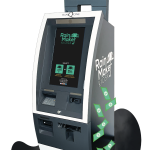Companies that depend on gig workers scored a major victory with California’s Supreme Court yesterday, affirming the independent-contractor model in the state, a decision that caps a years-long legal battle over how Uber and Lyft drivers should be classified.
California’s Supreme Court upheld a lower-court ruling that said Proposition 22, a 2020 ballot measure that allowed the companies to continue classifying their drivers as gig workers, was constitutional. Some ride-share drivers and a labor union had challenged that decision, leading to a prolonged legal fight that wound up in the state’s highest court.
California sued Uber and Lyft in 2020, saying they were in violation of a new state law that sought to reclassify their drivers as employees.
Uber, Lyft and gig-labor-dependent companies DoorDash and Instacart proposed a ballot measure to let CA voters decide whether the law should apply to them. They promised workers flexibility alongside some benefits if the ballot measure passed. State voters passed it with an overwhelming majority.
Under Proposition 22, the companies offer a minimum earnings guarantee, health insurance for drivers who work 15 hours or more a week, occupational accident insurance coverage and other protections. Critics say that the benefits fall short of those awarded to full-time employees.
“Whether drivers or couriers choose to earn just a few hours a week or more, their freedom to work when and how they want is now firmly etched into California law, putting an end to misguided attempts to force them into an employment model that they overwhelmingly do not want,” Uber said Thursday.
DoorDash called the decision a “huge victory,” adding that it was relieved that the “unnecessary legal process is behind us.”
The California arm of the Service Employees International Union, which challenged the measure, said it was disappointed.
What might this mean for your business?
Proposition 22’s successful passage set the tone for gig-worker regulation in the rest of the country.
For example, Washington state just passed a law preserving the companies’ independent-contractor models. Additionally, the companies reached a settlement with the attorney general of Massachusetts last month that promised workers a minimum wage alongside some benefits, mirroring Proposition 22.
Under Prop. 22, gig workers are promised guaranteed minimum earnings of 120% of minimum wage, health care stipends, occupational accident insurance and accidental death insurance.
Many of the benefits come with stipulations:
- The guaranteed earnings are based on time on a “gig” and don’t include time workers spend waiting for a ride or delivery.
- The health care stipends are for certain eligible workers only, excluding those who qualify for public assistance, including Medi-Cal.
- The occupational accident insurance has a $1 million limit.
- Gig workers are reimbursed for their mileage, although at less than the IRS-mandated rate employees receive — currently 35 cents a mile vs. 67 cents a mile. But this amount is included in the minimum earnings guarantee — it is not in addition to it.
- Because Prop. 22 will stand, app-based platform workers will continue to be ineligible for benefits such as sick pay, a minimum wage for all time worked, unemployment insurance and more.
Learn more from the advisory attorneys at the upcoming ACE National Board Meeting, which all registered EXPO guests are invited to attend! The ACE National Board Meeting is Sunday, August 25, from 3-5 pm in the Reunion Ballroom (A/B/C).




























